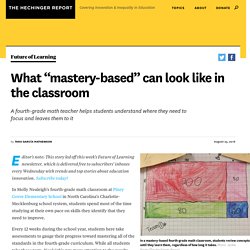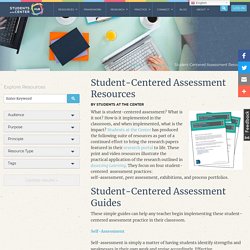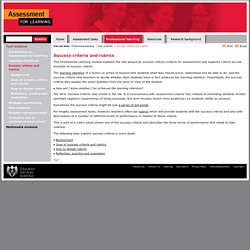

In a mastery-based classroom, students understand where they need to focus. Editor’s note: This story led off this week’s Future of Learning newsletter, which is delivered free to subscribers’ inboxes every Wednesday with trends and top stories about education innovation.

Subscribe today! In Molly Nealeigh’s fourth-grade math classroom at Piney Grove Elementary School in North Carolina’s Charlotte-Mecklenburg school system, students spend most of the time studying at their own pace on skills they identify that they need to improve. Every 12 weeks during the school year, students here take assessments to gauge their progress toward mastering all of the standards in the fourth-grade curriculum. While all students take these tests, Nealeigh’s pay more attention to the results than average. For her fourth graders, the test results offer a picture of their strengths and weaknesses, revealing specific skills they need to sharpen. Nealeigh helps them glean this understanding. Related: A school where you can’t fail – it just takes you longer to learn. Self Reflection - Kindergarten. Getting Feedback Right: a Q&A With John Hattie. Student-Centered Assessment Resources.
Opinion Editorials (Op-Eds) | Talking About… | Frequently Asked Questions | Brochures and Explainers Opinion Editorials (Op-Eds) The following op-eds appeared in newspapers and on websites across northern New England.

They cover a wide range of issues but all of them incorporate the framed story of education and learning. Champlain Valley Union High School: an op-ed about the school’s re-design efforts by Andre LaChance, English teacher and school advisor. Theordora J. David Theoharides, Superintendent, Sanford School Department in Maine shares his thoughts on proficiency-based graduation requirements. Talking About… Tammy Davis, Superintendent, Winnisquam Regional School District in New Hampshire, talks about systemic reform in the first in a series of newspaper columns. The following documents and links reflect recommendations based on the results of research on how Americans think about education and learning.
Frequently Asked Questions Brochures & Explainers. Edutopia. AER Video Library - Learning Goals and Success Criteria. Schools for Rigor. P06 Success Criteria FINAL. Learning targets session. Success criteria and rubrics. This Professional Learning module explains the role played by success criteria (criteria for assessment) and explores rubrics as one example of success criteria.

The learning intention of a lesson or series of lessons tells students what they should know, understand and be able to do, and the success criteria help teachers to decide whether their students have in fact achieved the learning intention. Importantly, the success criteria also answer the same question from the point of view of the student: How will I know whether I've achieved the learning intention? The term 'success criteria' was coined in the UK. It is synonymous with 'assessment criteria' but, instead of reminding students of their (perhaps negative) experiences of being assessed, this term focuses (much more positively) on students' ability to succeed. Sometimes the success criteria might be just a series of dot points. The following links explore success criteria in more detail. Anne Davies and Sandra Herbst. Developing Success Criteria - Video. Co-creating success criteria, Sara Carroll.